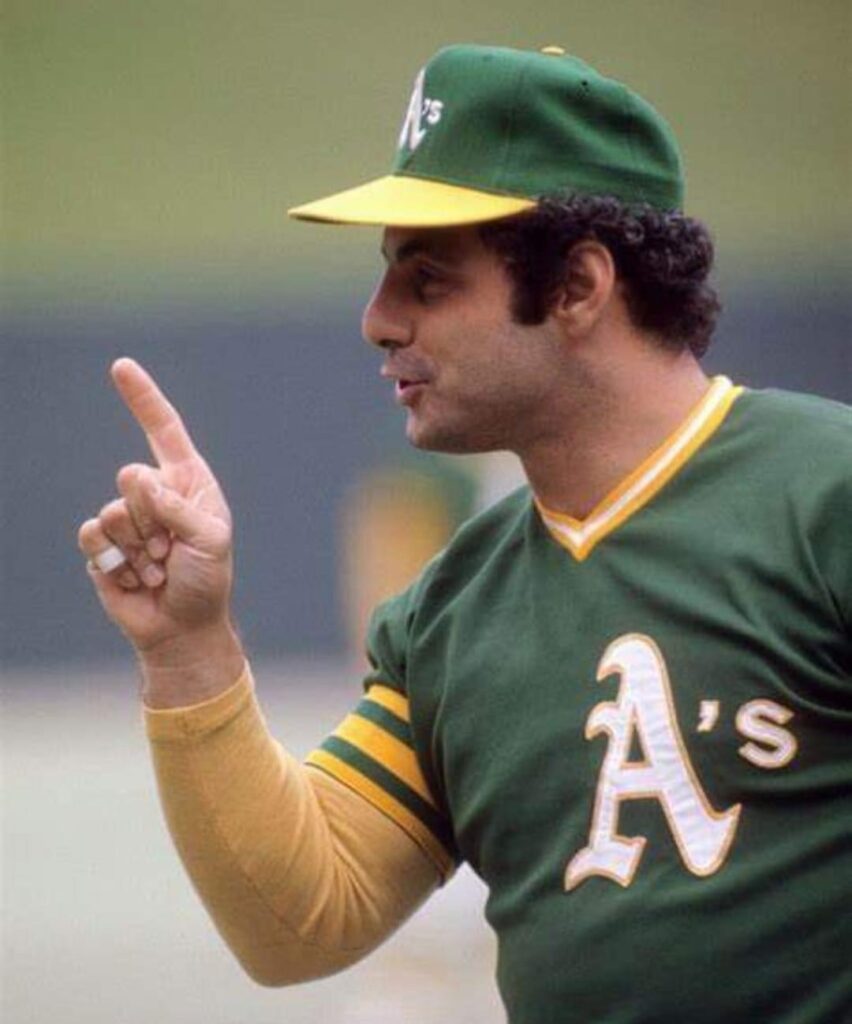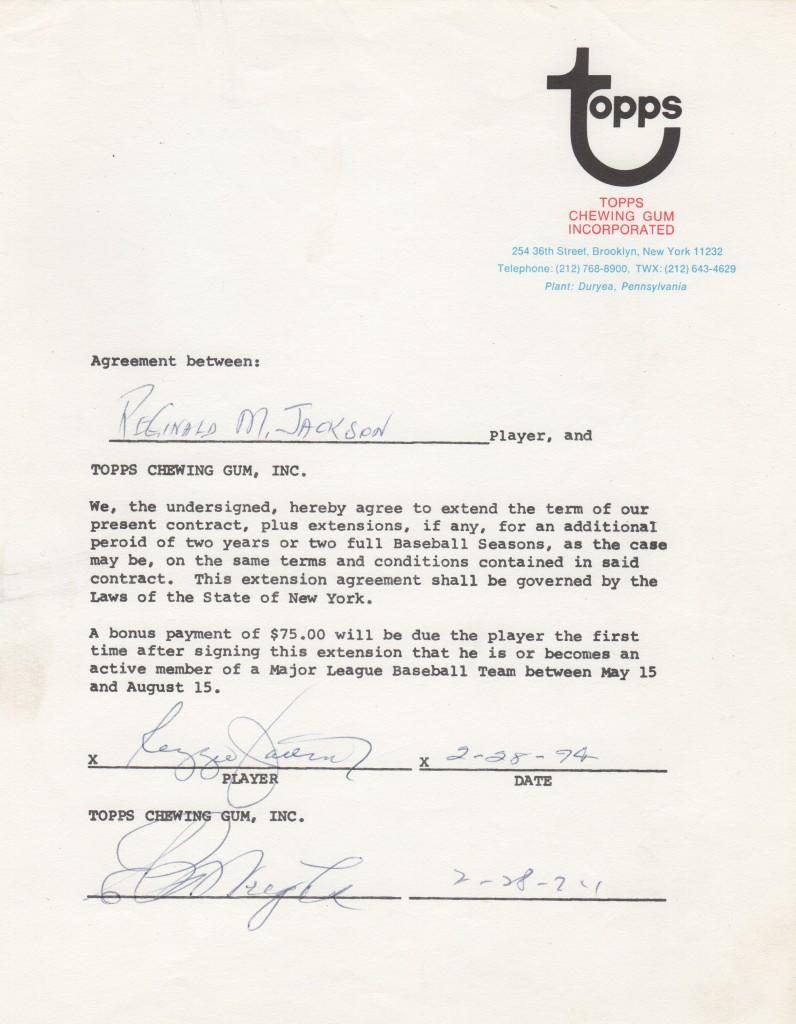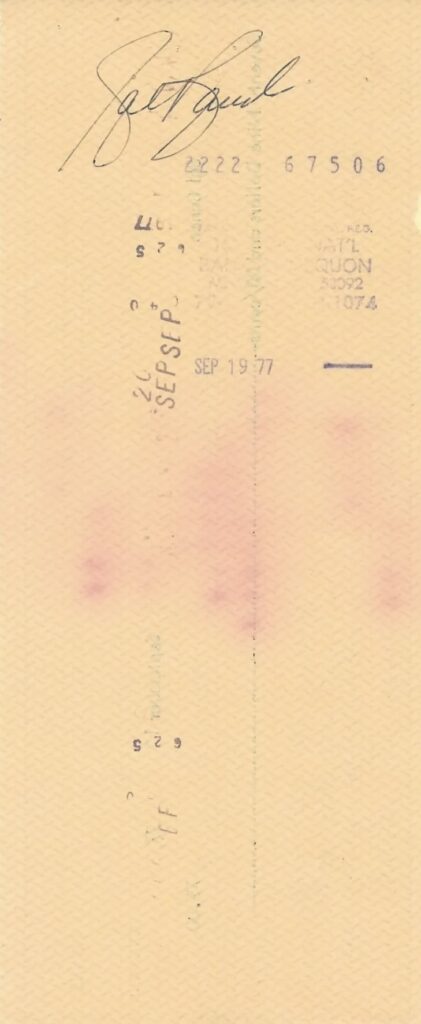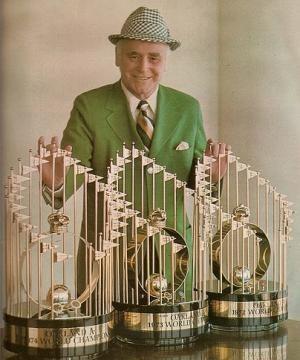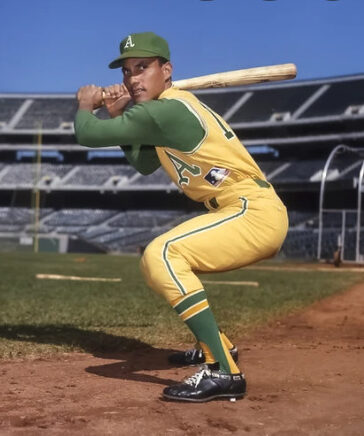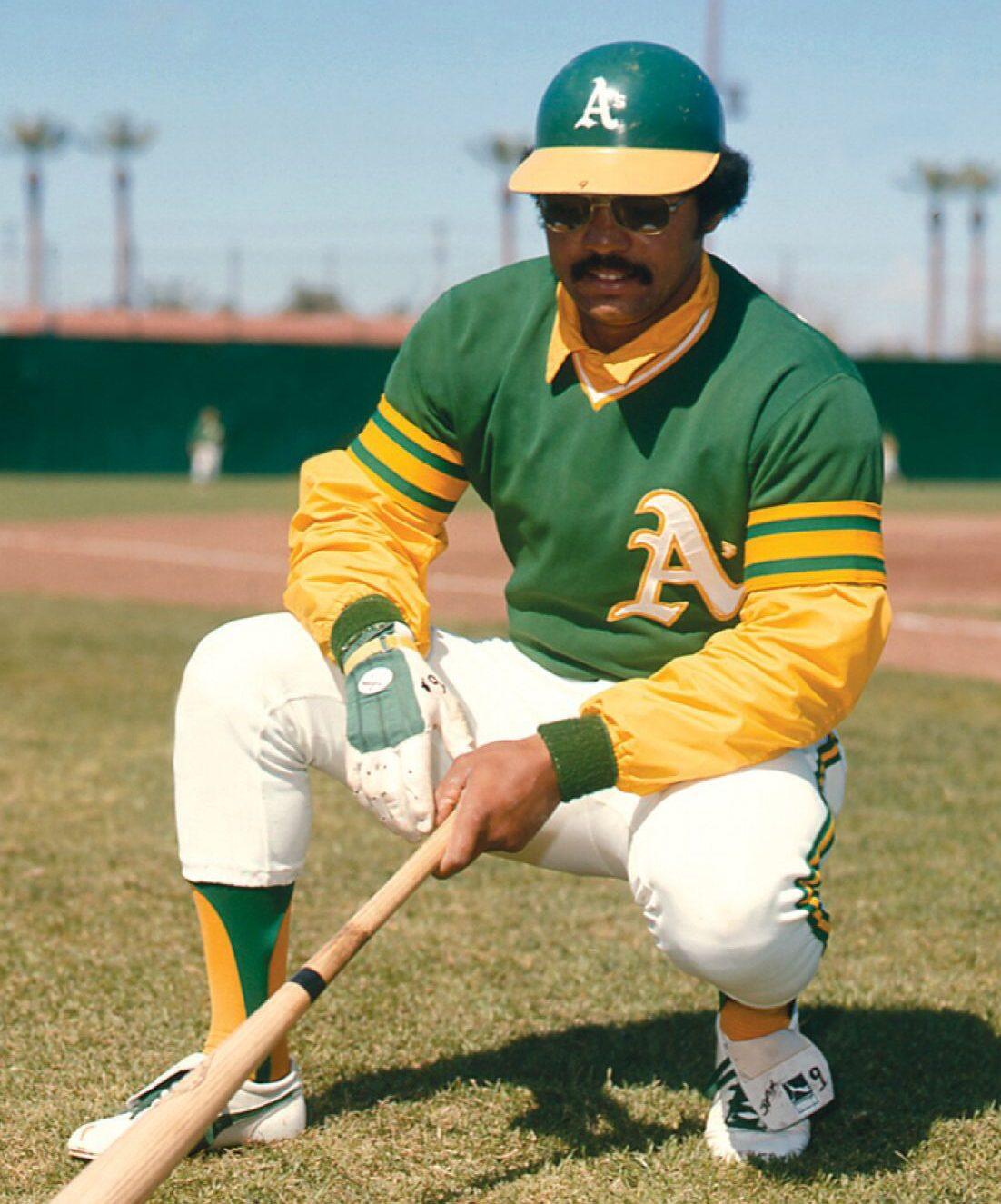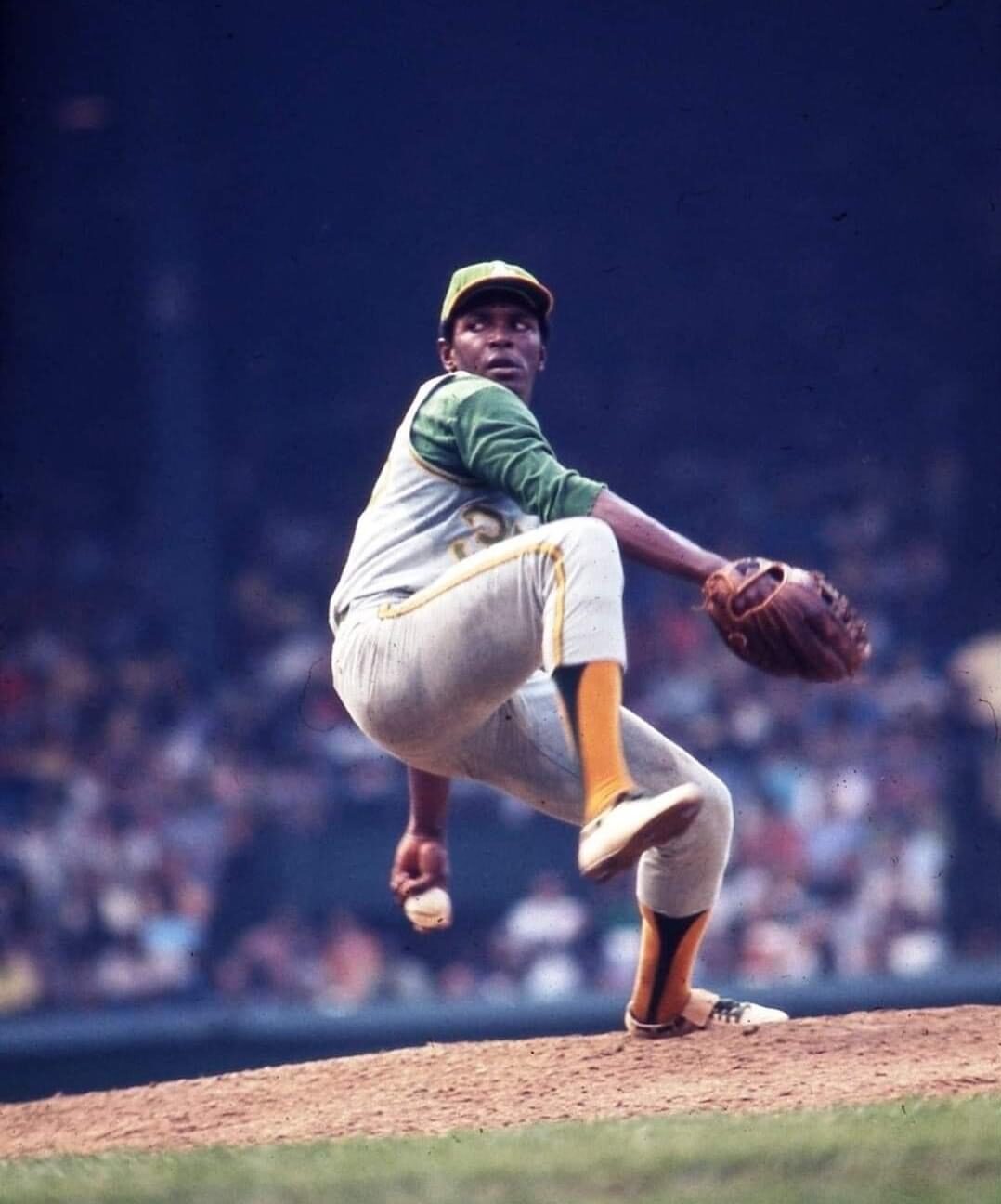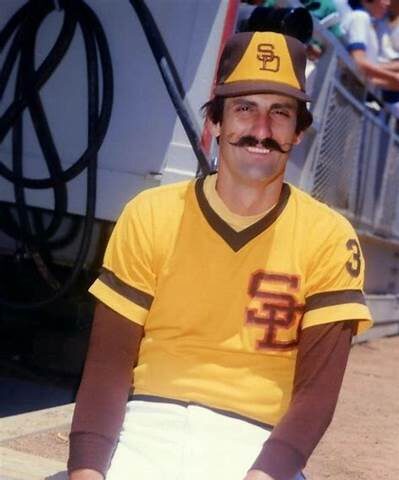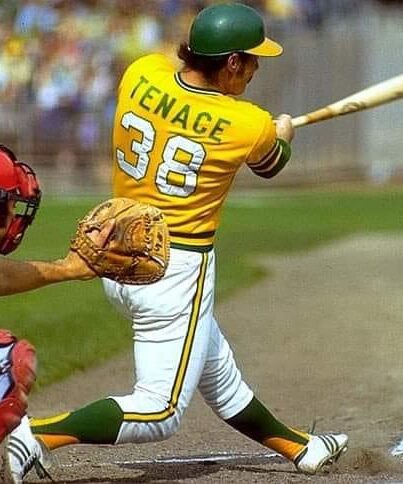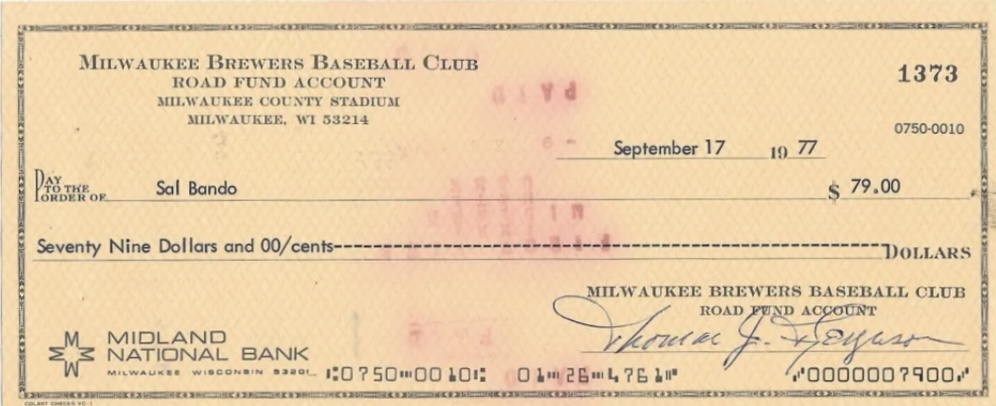
With five trips to the ALCS and three consecutive World Series titles, the Swingin’ A’s were the team of the 1970s. Their undisputed leader was third baseman Sal Bando.
The College World Series Most Outstanding Player for the 1965 champion Arizona State team, Bando brought a winning pedigree to the A’s as a 6th-round pick. The third baseman made his big league debut with the Kansas City Athletics in 1966 and became the everyday third baseman in ’68, the team’s first year in Oakland.
The following season Bando made his first All Star team and was named the captain of the A’s. By year’s end he had 111 walks, 31 homers, 113 RBI, a .400 on-base percentage, and a 153 OPS+. Another productive year ensued in 1970 when he slugged 20 homers and and upped his walks and on-base percentage to 118 and .407, respectively.
Oakland started their decade’s dominance in ’71 with the AL Western Division championship. Though they were swept aside in the ALCS by Earl Weaver’s Baltimore Orioles, their run was just beginning. From 1972-1974 Bando’s Athletics won three consecutive World Series titles, joining the Yankees as the only franchises to do so.
During Bando’s reign as the A’s captain from 1969-1976 he had single-season WAR totals of 8.2, 7.2, and four more seasons of at least 5.4. The team played in five championship series with Bando as their leader.
After the ’76 season Bando signed with the Brewers. In his first year he hit hit 27 doubles, 18 homers, and had 82 runs batted in. He followed that up with his seventh 5+ WAR campaign in ’77. Bando played with the Brewers through the 1981 when he hit .294 in his final postseason appearance in the ’81 ALDS.
The third baseman left the game with the Oakland record for career RBI. His home run total was also the most among Oakland right-handers. The next A’s team to win a World Series had a pair of sluggers who surpassed those marks in Mark McGwire and Jose Canseco.
Bando’s career WAR of 61.5 ranks ahead of Cooperstown’s Harmon Killebrew, Vladimir Guerrero, Ichiro Suzuki, Mike Piazza, and Willie Stargell. It also puts him ahead of popular Hall candidates Dick Allen, Jeff Kent, and Joe Mauer.
When the Oakland captain first appeared on the writers’ ballot in 1987 he received three votes. His 0.7% voting percentage made him one-and-done.
The National College Baseball Hall of Fame selected him for induction in 2013. Nine years later he was elected to the Oakland Athletics Hall of Fame in 2022.
Shown here is a check made out to Bando from the Brewers in his first year in Milwaukee.
